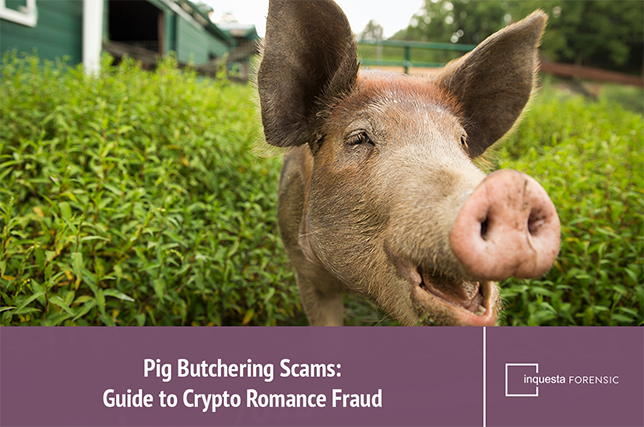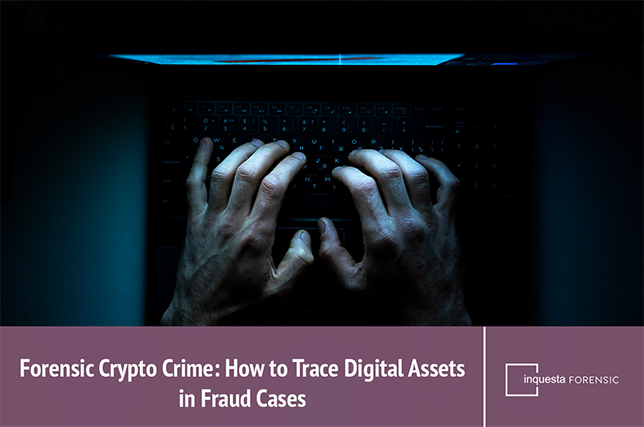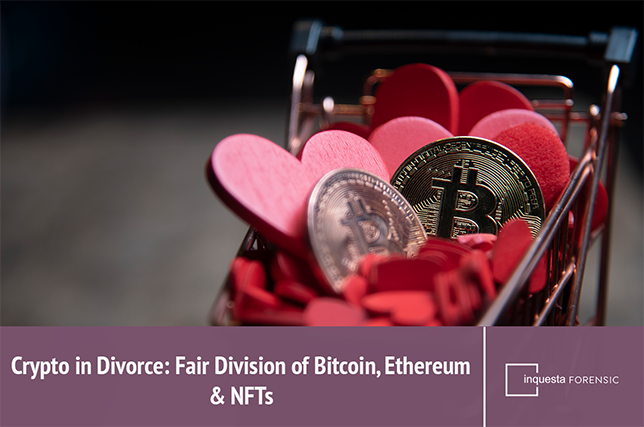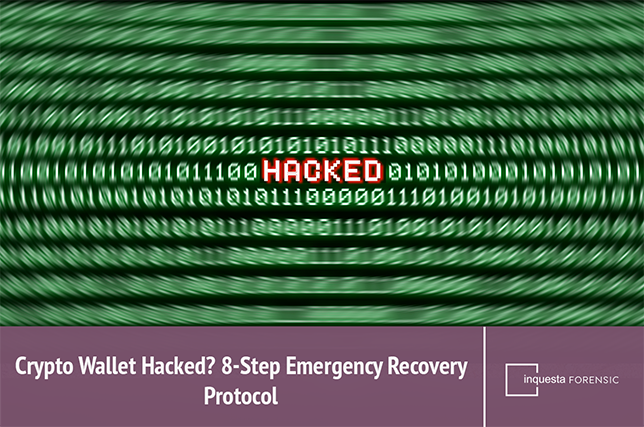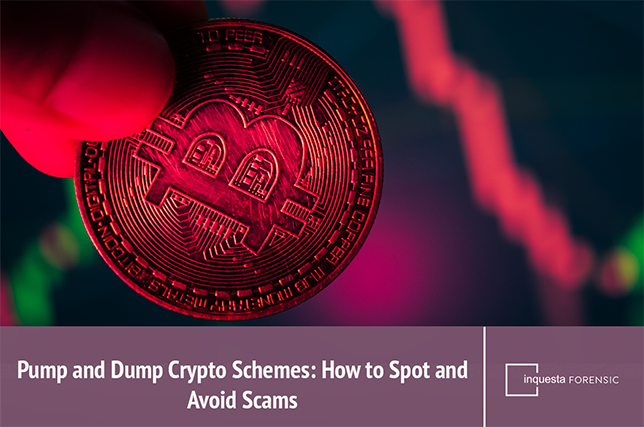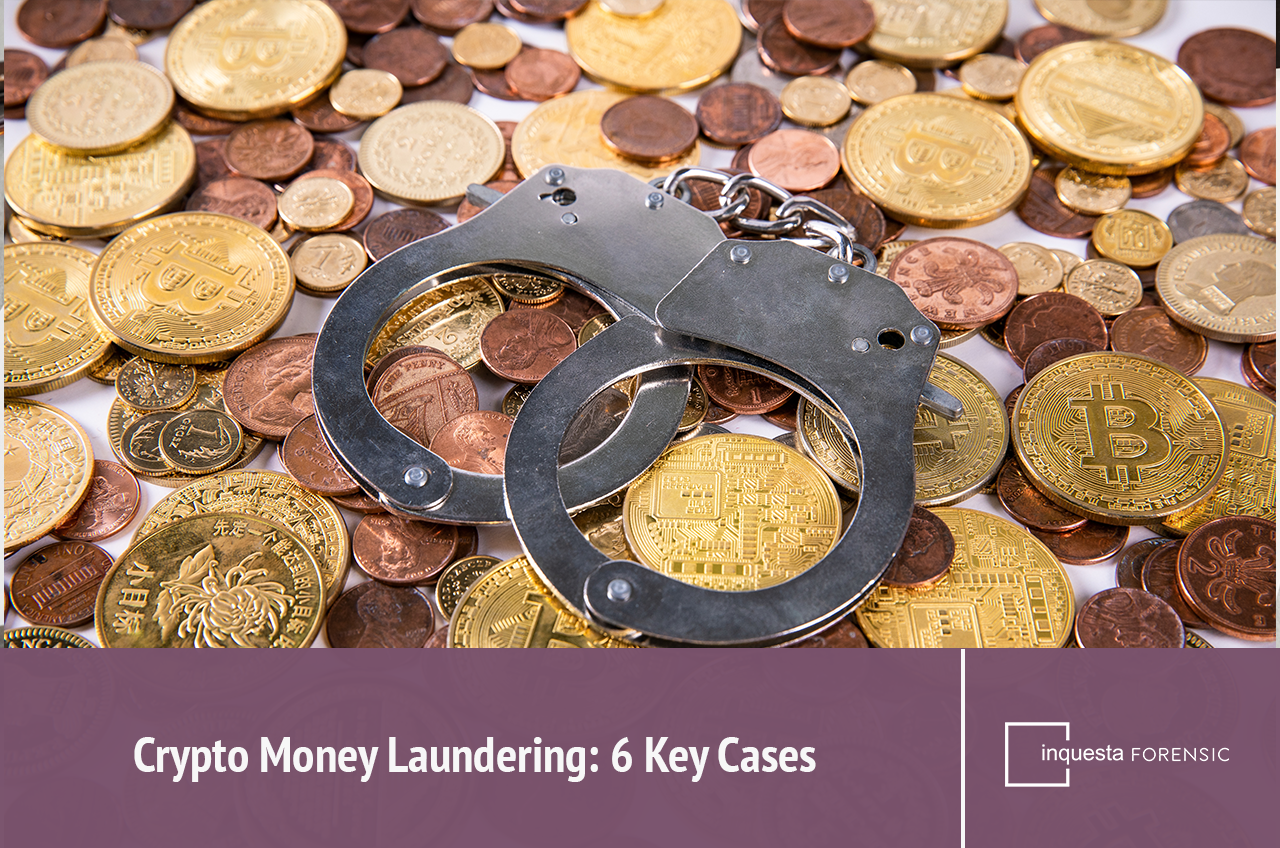When it comes to investing in digital currency, the excitement that comes with the promise of financial freedom and being on the ground floor of innovation can often overshadow the lurking spectre of frauds and scams.
From deceptive investment groups to sophisticated phishing schemes, there are a number of common cryptocurrency scams that can leave an unassuming investor penniless and disillusioned.
As the digital landscape evolves, so do the methods employed by cybercriminals looking to exploit and defraud the unaware. With the allure of quick and ‘easy’ profits, as well as the cloak of anonymity afforded by the blockchain, it’s no wonder that the field sometimes feels like the Wild West. But fear not, when it comes to avoiding cryptocurrency scams, knowledge is your best defence.
Join us as we delve into the murky waters of the most common cryptocurrency scams out there today, shedding some light on the tactics most often utilised by scammers, while offering insights into how you can protect yourself from falling victim to one of these schemes.
What Constitutes as a Scam Cryptocurrency Scheme?
A scam cryptocurrency scheme intends to deceive somebody looking to invest in digital currency. Crypto scams can come in a number of different guises, but virtually all of them share one key trait; the goal of parting a person or organisation from their assets using some form of deception.
Due to the emerging nature of the industry, some of the most common cryptocurrency scams can be incredibly lucrative for criminals. This is due to how new and often complex blockchain technology is. Many simply don’t possess an in-depth understanding of it — certainly not enough to protect themselves from scammers.
Additionally, due to the anonymity of transactions on the blockchain, cryptocurrency scams are becoming more of an issue. Fortunately, there are experts out there that specialise in mitigating the potential risk from cryptocurrency scams for investors. Specialists, such as forensic accountants, may also be able to return stolen digital assets to their rightful owner.
9 Common Cryptocurrency Scams to be Aware Of
From fake ICOS and wallets to ponzi schemes and phishing attacks, criminals have a variety of methods to part you from your digital assets. Only by doing your research can you ensure that you’ve minimised the risk of becoming a victim.
Let’s look at nine common cryptocurrency scams to keep an eye out for:
Mock Investment Groups
Some scammers may set up and promote fraudulent investment clubs or groups. This scheme revolves around the lie that every member puts money in, which is then pooled in order to invest in cryptocurrency — to the benefit of each member.
However, in a majority of cases the money raised will instead go directly to the founders, who will utilise it for personal gains, or invest it and keep any profits for themselves, leaving the remaining members of the group out of pocket.
Phishing Scams
One of the most common cryptocurrency scams, phishing is where a scammer contacts somebody purporting to be from a reputable company or trustworthy individual. The aim of phishing scams are to try to induce the receiver of the email to reveal their personal information, such as passwords and credit card numbers.
In the context of digital assets, scammers will attempt to deceive you into giving them usernames, passwords, and your private key,
Phishing attacks aren’t exclusively reserved for emails and messaging apps. They can also take the form of misspelt URLs. A common way to do this is to create a scam website with only one letter difference from a legitimate crypto site hoping to benefit from anybody who mistypes.
Fake Initial Coin Offerings (ICOs)
A fake ICO is a scheme where a party or group launches a coin, passes it off as legitimate and seeking investors when, in reality, the coin only actually exists in name and is nothing more than a front.
The aim of an ICO is to release a new currency, with any money raised being used to support the network of said cryptocurrency. However, in the case of fake ICOs, the developers will generally just disappear once proceeds are raised.
The largest example of a fake ICO was orchestrated by the Vietnamese company Modern Tech, which launched ‘Pincoin’ and iFan. They successfully raised an estimated $660 million from over 30,000 investors before vanishing without a trace. Modern Tech lured in their investors with promises of an 8% commission for referrals and a ‘too-good-to-be-true’ 48% profit rate on your initial investment.
Influencer/Celebrity Impersonation
A common method scammers will use to attract investment for their scheme is to create fake social media profiles, competition, or even celebrity/influencer endorsement.
They will use this exposure to trick users into putting their assets in danger.

Fake Wallet Apps
Fake wallet scams are highly sophisticated schemes designed to take on the appearance of, and deceive users into believing that they’re using, a genuine digital wallet to securely store their cryptocurrency.
These scam wallets will often mimic the appearance and functionality of other legitimate wallet services, making it extremely difficult to distinguish between the real deal and fake platforms.
The crux of fake wallet apps lies in the fact that, unbeknownst to the user, when they enter their private keys into these wallets, the scammers behind it gain immediate access to their cryptocurrency holdings.
Fake wallet apps not only result in the theft of the user’s assets, but it also can expose them to ongoing risks, including identity theft.
Ponzi Schemes
A Ponzi scheme is a form of fraud that aims to lure investors with the promise of significant return on their initial stake. However, any profits paid out are instead simply money raised from more recent investors. Ponzi schemes can be lucrative for scammers as this illusion of legitimacy can often be maintained for as long as investors continue to put money into the scheme.
Cryptocurrencies have been utilised by scammers to bring the concept of Ponzi schemes into the modern day. A common front for crypto ponzi schemes lies in the misuse of ICOs. Most such schemes are infamous for being incredibly difficult to recover lost funds.
Another prominent ponzi scheme in the field of digital currency is cloud mining scams. This type of fraud utilises the legitimate cloud mining business model, but instead of using the investment to fund the mines, legitimate returns are impossible because no mining equipment will ever be purchased.
Pump-and-Dump Schemes
Another of the most common cryptocurrency scams is the ‘pump-and-dump scheme’. A scammer looking to utilise a pump-and-dump scheme will, via a number of different methods, attempt to artificially inflate (pump) the price of a particular digital asset. Then, once the price peaks, the scammer will immediately sell (dump) the large number of tokens they bought when the price was at its lowest to the open market. This rapid increase in supply will subsequently cause the token’s price to crash.
Some tokens are actually created with the sole purpose of being utilised as part of a pump-and-dump. A recent example is the Squid Game token which took advantage of the massive popularity of the show on Netflix to pump up the price, before the developers sold their tokens and vanished. This particular example saw the scammers raise over $12million.
Fraudulent Exchanges
Similar in execution to a fake wallet scheme. Fraudulent exchanges are set up by scammers to copy the look and feel of a legitimate exchange with the aim of attracting users looking to deposit funds.
Usually, once the funds are on the fake site though, they are not retrievable by the user and will be lost.
Malware
Malicious software is used by scammers to infect a user’s device. Once the malware has corrupted the system, scammers are able to steal any important information or cryptocurrency contained on the device. In some cases, they might demand some form of ransom in exchange for unlocking the device and returning it to the original user.
8 Tips for Scam Cryptocurrency Defence
From conducting proper due diligence and being wary of anything that appears too-good-to-be-true, to always using established and secure platforms when investing, there are a number of measures you can implement to defend against some of the most common cryptocurrency scams.
Some of the top tips to protect yourself against scam cryptocurrency include:
- Due Diligence: Prior to investing, it’s vital that you take the time to understand the currency, its technology, the team behind it, etc.
- Always Evaluate: When it comes to your hard-earned cash, you’ll want to check for a strong digital presence. For peace of mind, avoid any anonymous or vague projects.
- Beware ‘Too-Good-To-Be-True’: Don’t trust any offers you receive that appear too good to be true, they likely are.
- Seek Out the Established: For appropriate protection and insurance, use only the products and services of trusted industry leaders.
- Assess Compliance: Before considering investing, you should assess a project’s legality.
- Secure Personal Data: By utilising safe browsing habits and never sharing out your private keys, you can ensure maximum protection from the most common cryptocurrency scams.
- Stay in the Loop: By keeping abreast of the latest fraud developments, you can ensure maximum protection long-term.
- Get Expert Assistance: If you need support to protect yourself against potential scam cryptocurrency schemes, contact a professional who can ensure you have the necessary defence.
For more information about how to avoid fraudulent behaviour, including the common cryptocurrency scams listed above, check out our dedicated blog — Cryptocurrency Fraud Prevention Tips.
Stay Protected With Our Cryptocurrency Crime Defence Service
Navigating the complex field of cryptocurrency fraud can be daunting. However, with the right tools and knowledge, you can safeguard your investments and navigate the potential pitfalls with confidence and assuredness.
While staying well-informed and following best practices are crucial steps in protecting yourself against the most common cryptocurrency scams, there are times when you need expert assistance to ensure comprehensive protection. That’s where the expertise of Inquesta Forensic comes into play.
Thanks to our specialised knowledge and experience in the field of cryptocurrency defence, our team of experts are well-equipped to identify, mitigate, and even recover assets that have been lost to cryptocurrency scams.
Consider our service as a robust shield against digital asset fraud, providing peace of mind and allowing you to invest with confidence in the future.
For more information about how our team can protect you from some of the most common cryptocurrency scams out there today, get in touch today.
- The Essential Role of Forensic Accounting in High Net Worth Divorce
- How to Value a Startup Business: A Guide for UK Entrepreneurs
- Pig Butchering Scams: Guide to Crypto Romance Fraud
- Shareholders’ Disputes: How Business Valuation Helps with Shareholder Dispute Resolution
- 11 Costly Business Valuation Errors (And How to Avoid Them)



